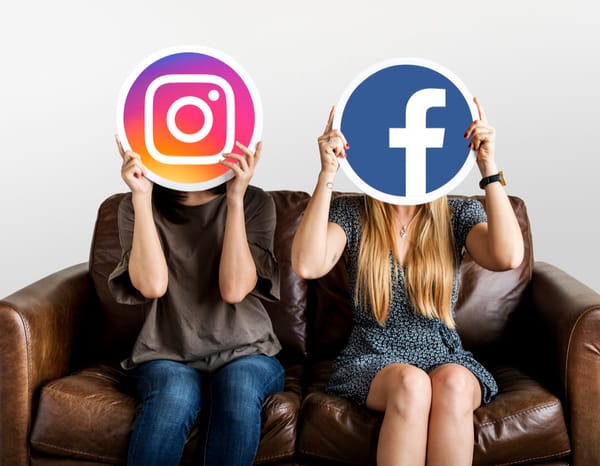How Narratives Rewire the Brain and Why It Matters for Your Small Business
This visceral reaction to storytelling isn't just a flight of fancy. It's science. And understanding this science could be the key to taking your small business to the next level.

Picture this: You're sitting around a campfire, listening to a friend recount a thrilling adventure. As the story unfolds, you find yourself on the edge of your seat, your heart racing, palms sweating. You're not just hearing a tale; you're living it.
This visceral reaction to storytelling isn't just a flight of fancy. It's science. And understanding this science could be the key to taking your small business to the next level.
The Brain on Stories: A Neurological Rollercoaster
When we hear a story, our brains light up like a pinball machine. But it's not just the language centres that get a workout. A well-told story engages multiple areas of the brain, creating a holistic experience that's almost indistinguishable from real life.
"Stories stimulate brain activity," explains Dr. Paul Zak, Director of the Center for Neuroeconomics Studies at Claremont Graduate University. "When we hear a story, our neurons fire in the same patterns as the speaker's."
This phenomenon, known as neural coupling, is just the tip of the iceberg when it comes to the neuroscience of storytelling.
The Neurochemistry of Narrative
Let's break down what happens in our brains when we're exposed to a compelling story:
- Cortisol: This stress hormone is released during the tense moments of a story, making us focus.
- Dopamine: When something exciting happens in the story, our brains release dopamine, which helps us remember the experience.
- Oxytocin: Often called the "love hormone," oxytocin is produced when we bond with characters in a story, promoting empathy and connection.
- Endorphins: The feel-good resolution of a story triggers endorphins, leaving us feeling satisfied and happy.
This cocktail of neurochemicals doesn't just make us feel good – it makes stories stick in our memory and influences our behaviour.
From Lab to Laptop: Why This Matters for Your Small Business
Now, you might be thinking, "That's fascinating, but I run a plumbing business, not a neuroscience lab. How does this help me?"
The answer is simple: by understanding how stories affect the brain, you can craft more effective marketing messages, build stronger customer relationships, and ultimately, grow your business.
Let's look at some practical applications:
1. Capturing Attention in a Distracted World
In an era of information overload, getting and keeping someone's attention is half the battle.
Stories, by triggering the release of cortisol, help focus attention.
Small Business Tip: Instead of bombarding potential customers with features and specs, try opening your marketing emails or social media posts with a brief, intriguing story.
For example, a home security company might start with, "It was 2AM when Sarah heard the sound that changed her life..."
2. Making Your Message Memorable
Dopamine aids in memory formation. When your brand story triggers a dopamine release, it's more likely to be remembered.
Small Business Tip: Create anticipation in your storytelling. Tease upcoming products or events with story-driven countdowns. A local bakery could share the tale of their quest for the perfect croissant recipe, building anticipation for the big reveal.
3. Building Emotional Connections
Oxytocin, the empathy and bonding hormone, is crucial for building customer loyalty.
Small Business Tip: Share stories that showcase your company's human side. Highlight employee volunteering efforts, or share customer success stories. A pet grooming service could feature heartwarming tales of rescue dogs getting makeovers, tugging at the heartstrings of pet lovers.
4. Leaving a Positive Impression
The endorphin rush at the end of a satisfying story can create positive associations with your brand.
Small Business Tip: Ensure your brand stories have a clear, uplifting resolution. A financial advisory firm could share client stories that end with achieved goals and peace of mind.
The Neural Narrative: Storytelling Techniques Backed by Science
Now that we understand the why, let's explore the how. Here are some scientifically-backed storytelling techniques to supercharge your small business marketing:
1. The Power of "You"
Research from the Journal of Cognitive Neuroscience shows that our brains engage more when we hear or read the word "you" in a story. It makes us feel personally involved.
Application: Instead of saying "Our customers love our product," try "You'll love how this product makes you feel."
2. Sensory Details Activate the Brain
A study published in Brain and Language found that descriptive sensory words activate corresponding areas in the brain. For example, the phrase "lavender scent" activates the olfactory cortex.
Application: Use vivid, sensory language in your descriptions. A candle shop could write, "The warm, spicy aroma of cinnamon will transport you to your grandmother's kitchen on a crisp autumn morning."
3. The Identifiable Victim Effect
Research shows that people are more likely to empathise with and help a single identifiable individual rather than a large, anonymous group.
Application: When sharing impact stories, focus on individual narratives rather than broad statistics. A charity could highlight the story of one person they've helped rather than quoting overall numbers.
4. The Zeigarnik Effect
This psychological principle states that people remember uncompleted or interrupted tasks better than completed ones.
Application: Use cliffhangers in your social media or email marketing. Start a story in one post and finish it in another, keeping your audience hooked.
The Future of Storytelling: Neuromarketing and Beyond
As our understanding of the brain deepens, so too does our ability to craft more engaging, effective stories. Neuromarketing, the application of neuroscience to marketing, is still in its infancy, but it promises to revolutionise how businesses communicate.
Imagine being able to test the effectiveness of your brand story before you even launch it, using brain scans to measure engagement and emotional response. While this technology might seem out of reach for small businesses now, simplified, more accessible versions are on the horizon.
The Ethical Storyteller: A Note of Caution
With great power comes great responsibility. As we unlock the secrets of how stories affect the brain, it's crucial to use this knowledge ethically.
Dr. Uri Hasson, a neuroscientist at Princeton University, warns: "Storytelling is one of the most powerful ways to manipulate the human mind. It's important to use this tool responsibly."
For small businesses, this means being truthful in your storytelling, respecting your audience's intelligence, and using your narrative powers to genuinely add value to your customers' lives.
Wrapping Up: Your Brain on Business Stories
The science is clear: stories are not just entertainment; they're a fundamental way that human brains process and remember information. For small businesses, this insight is pure gold.
By crafting compelling narratives that trigger the right neurological responses, you can capture attention, build emotional connections, and create lasting memories of your brand.
Remember, you don't need a PhD in neuroscience to be an effective storyteller. Start by being authentic, focusing on your customers, and continuously refining your narrative. Your brain – and your business – will thank you.
So, the next time you're crafting a marketing message or talking to a potential client, remember: you're not just telling a story. You're lighting up brains, releasing neurotransmitters, and potentially changing someone's world.
Now that's a story worth telling.




